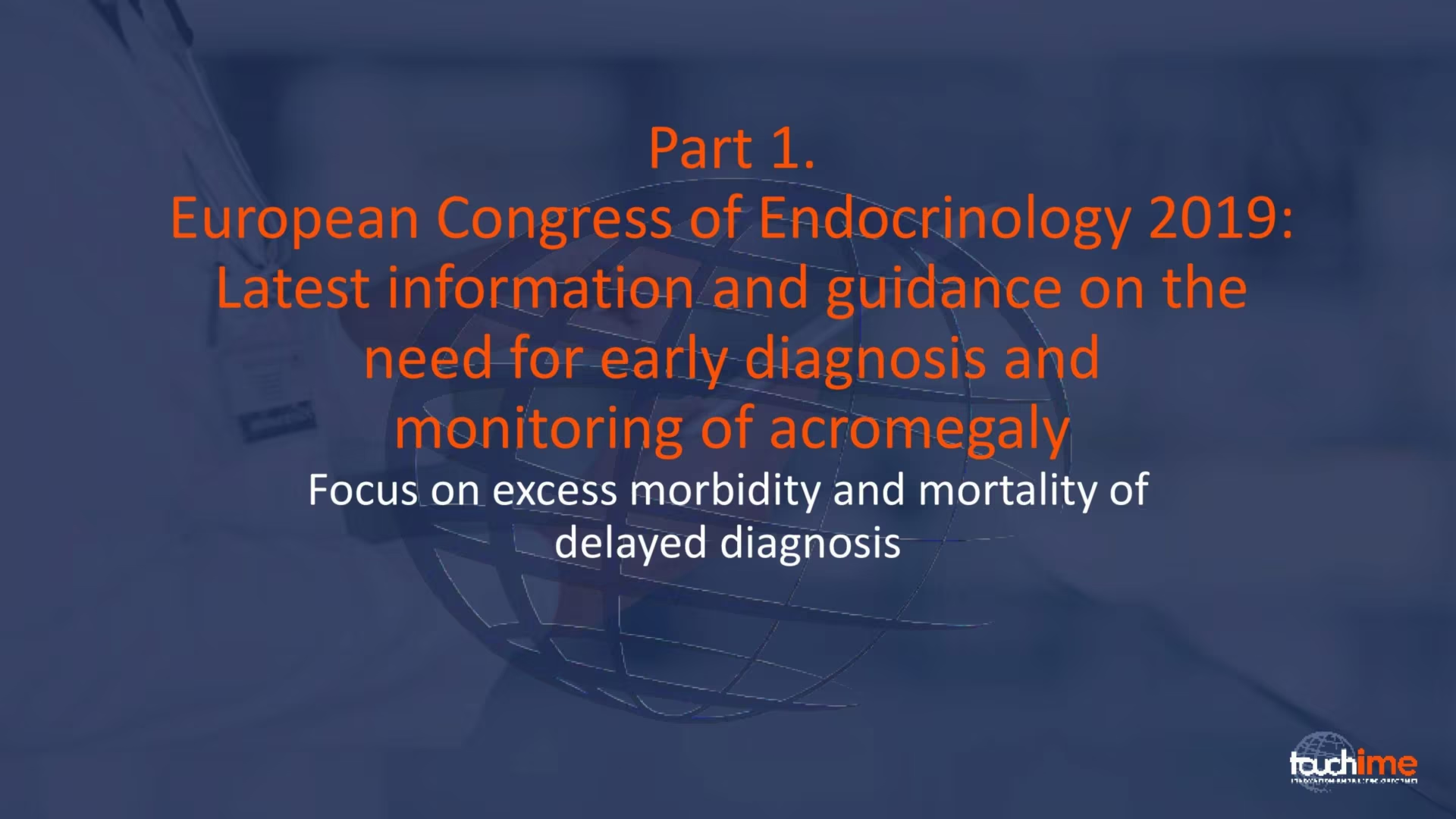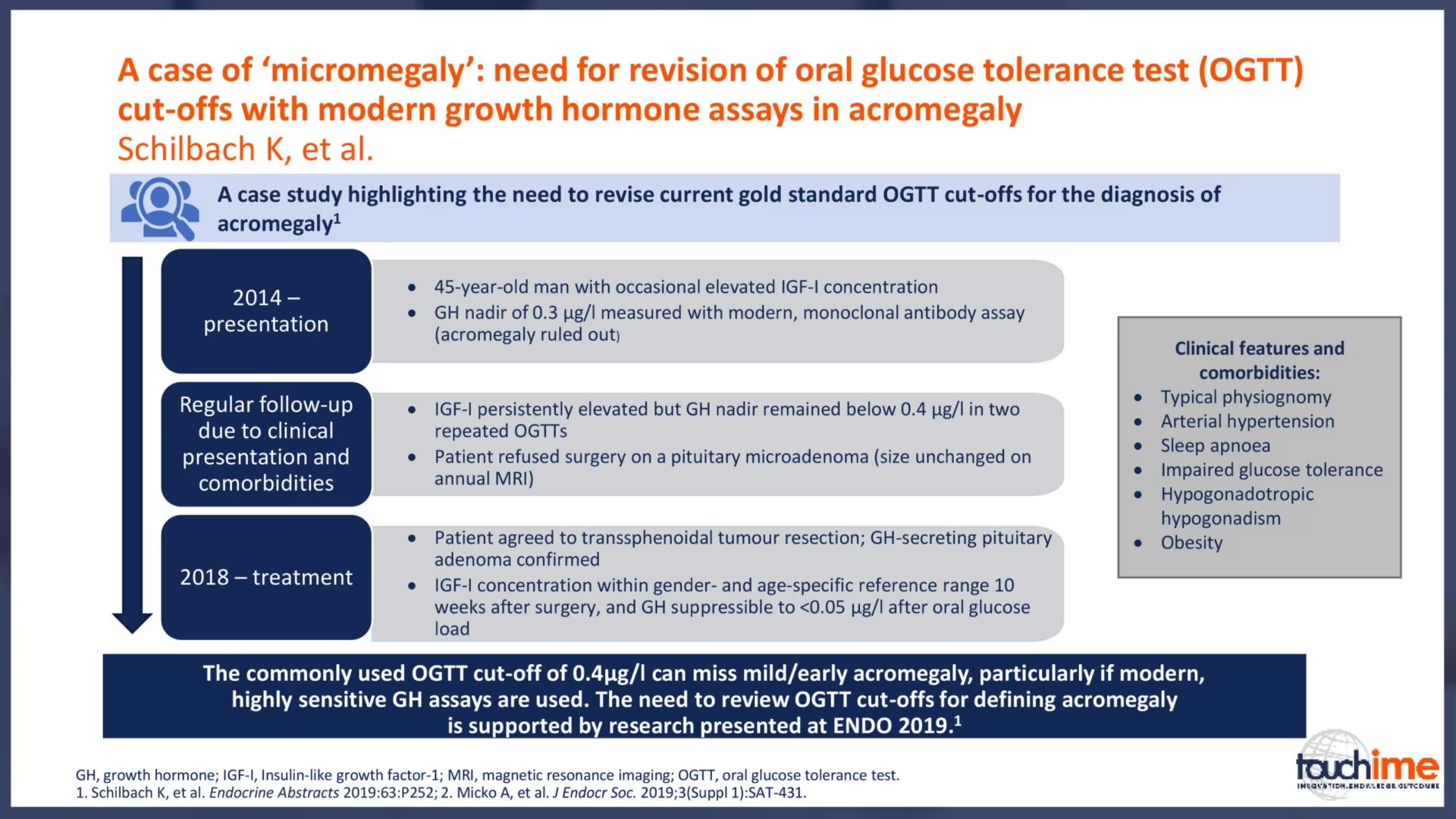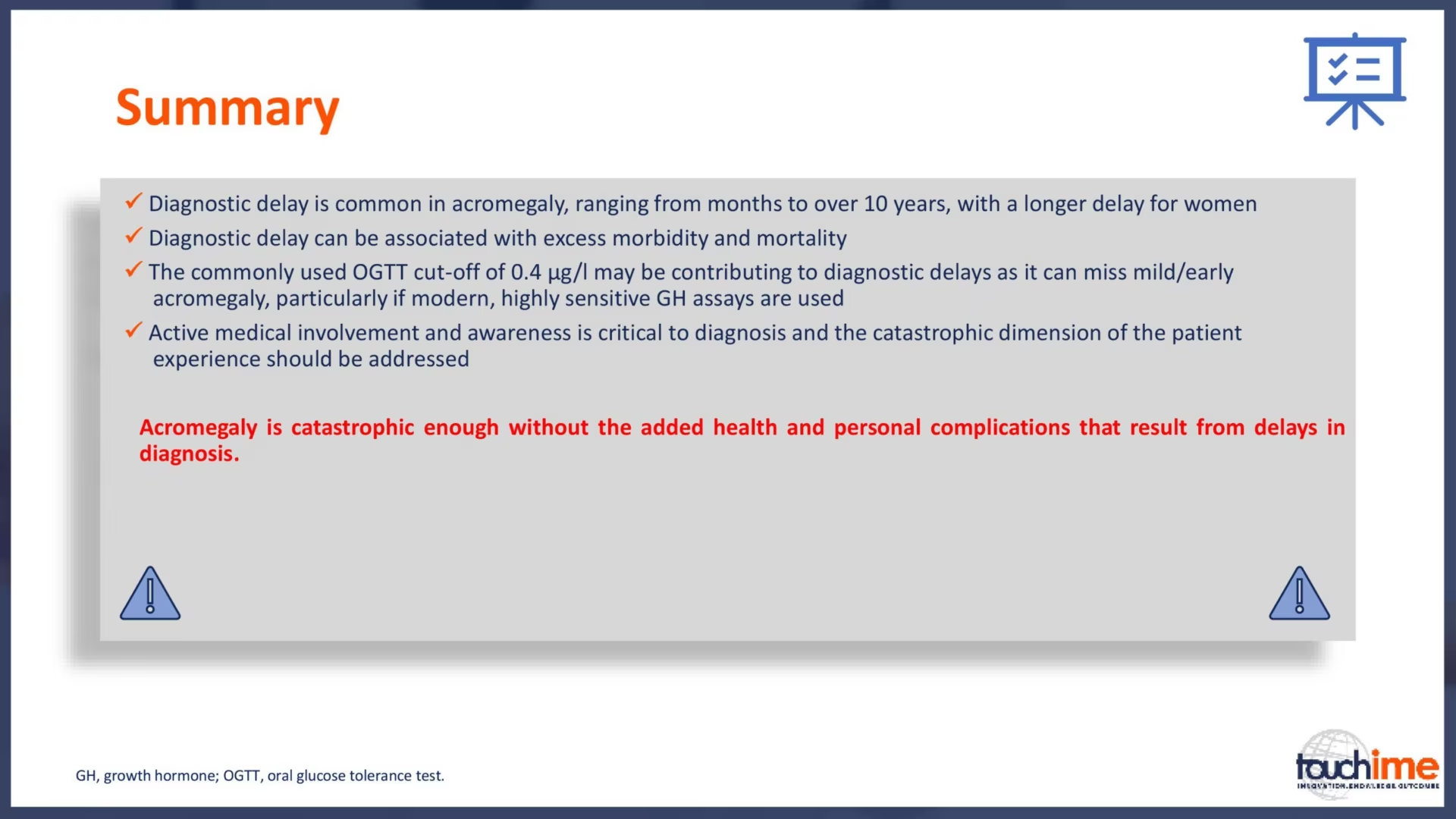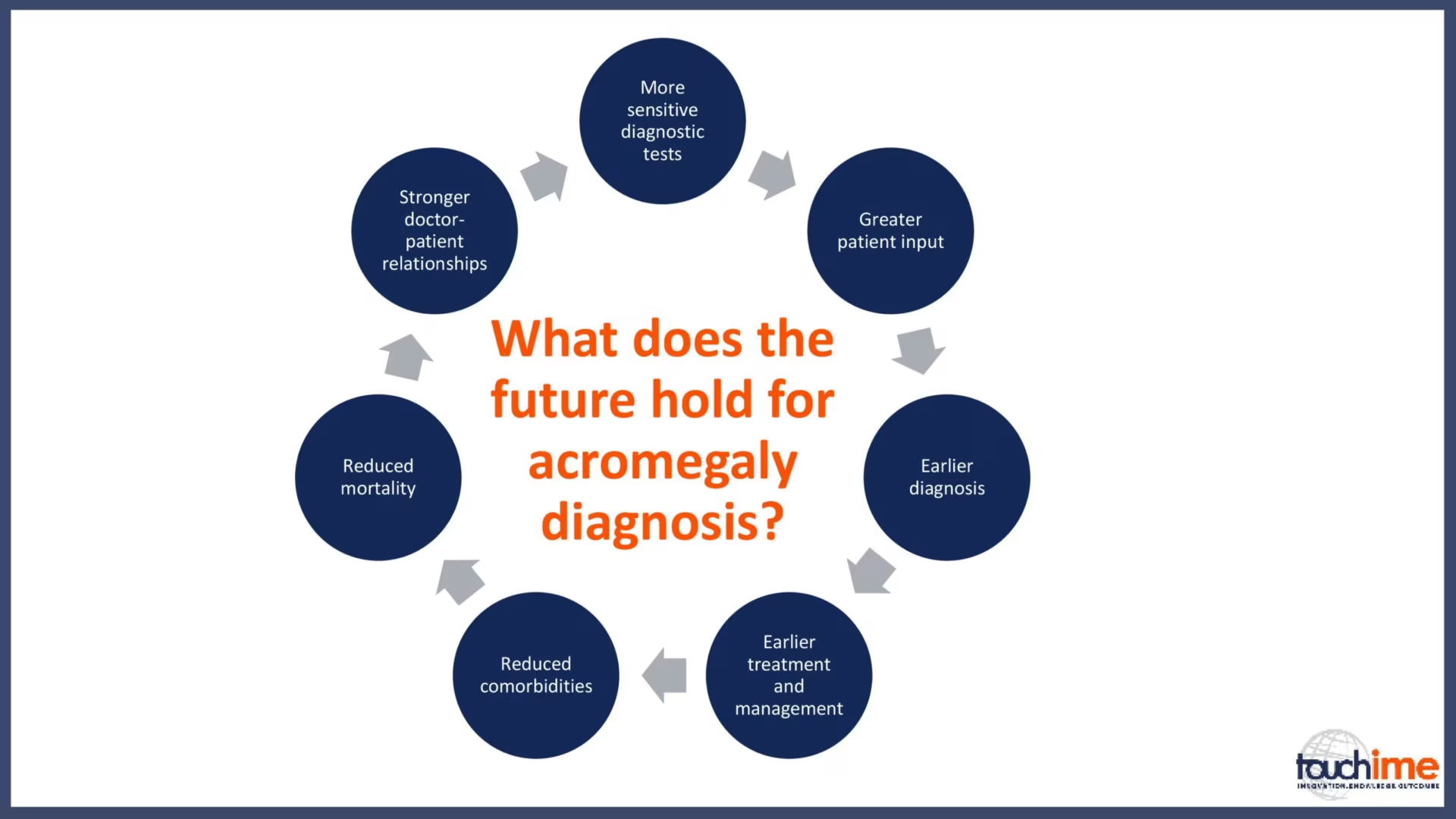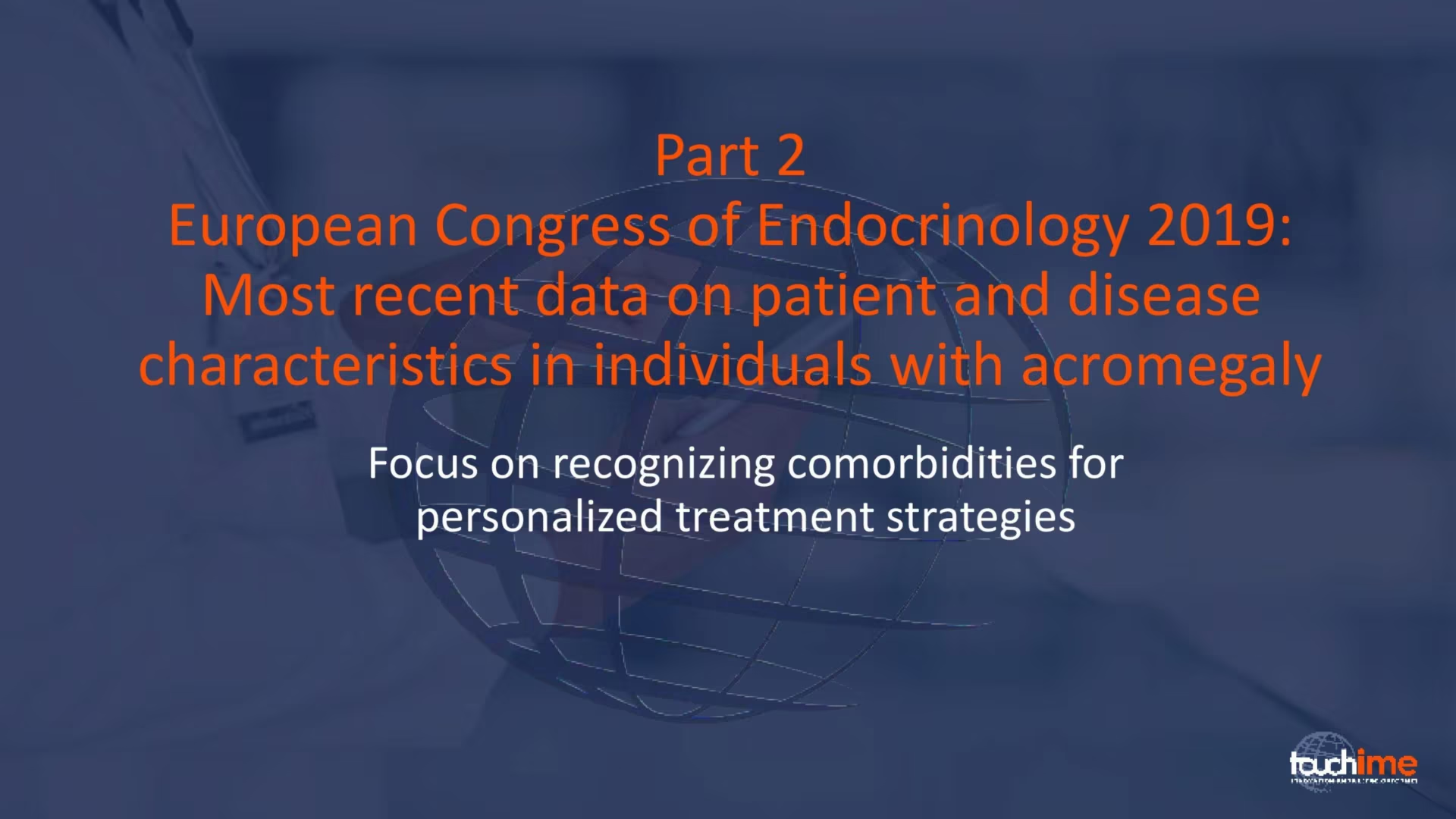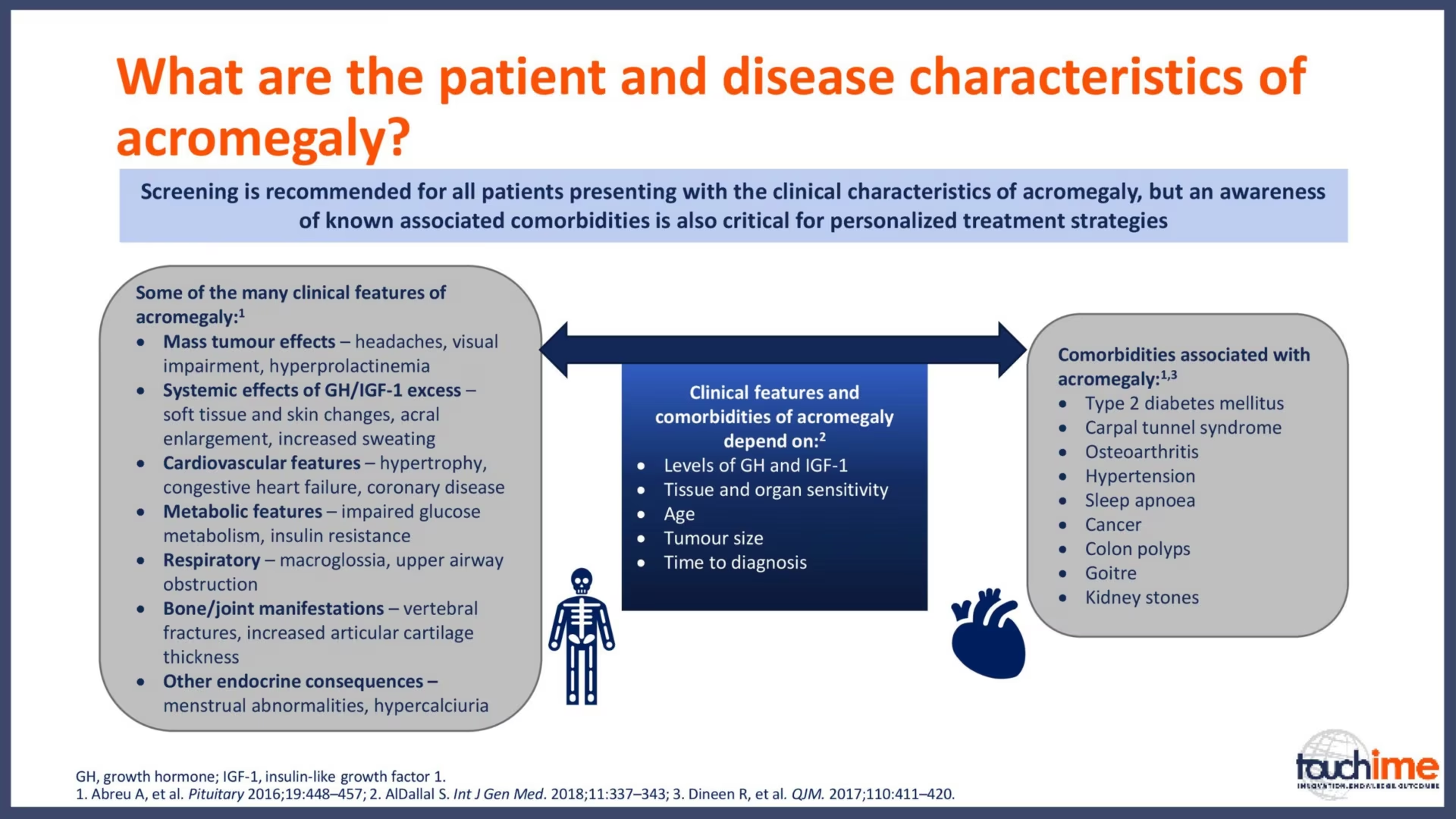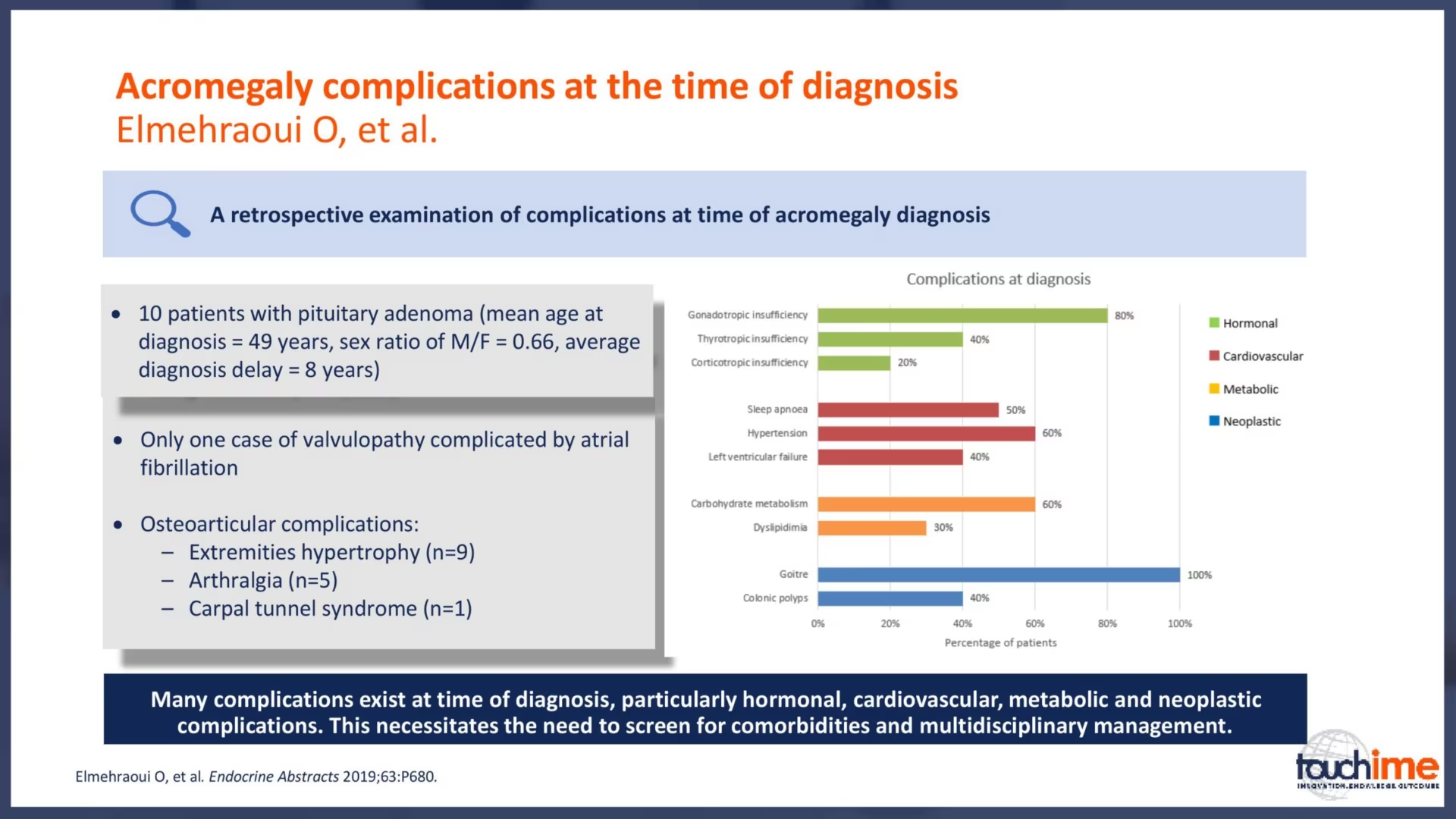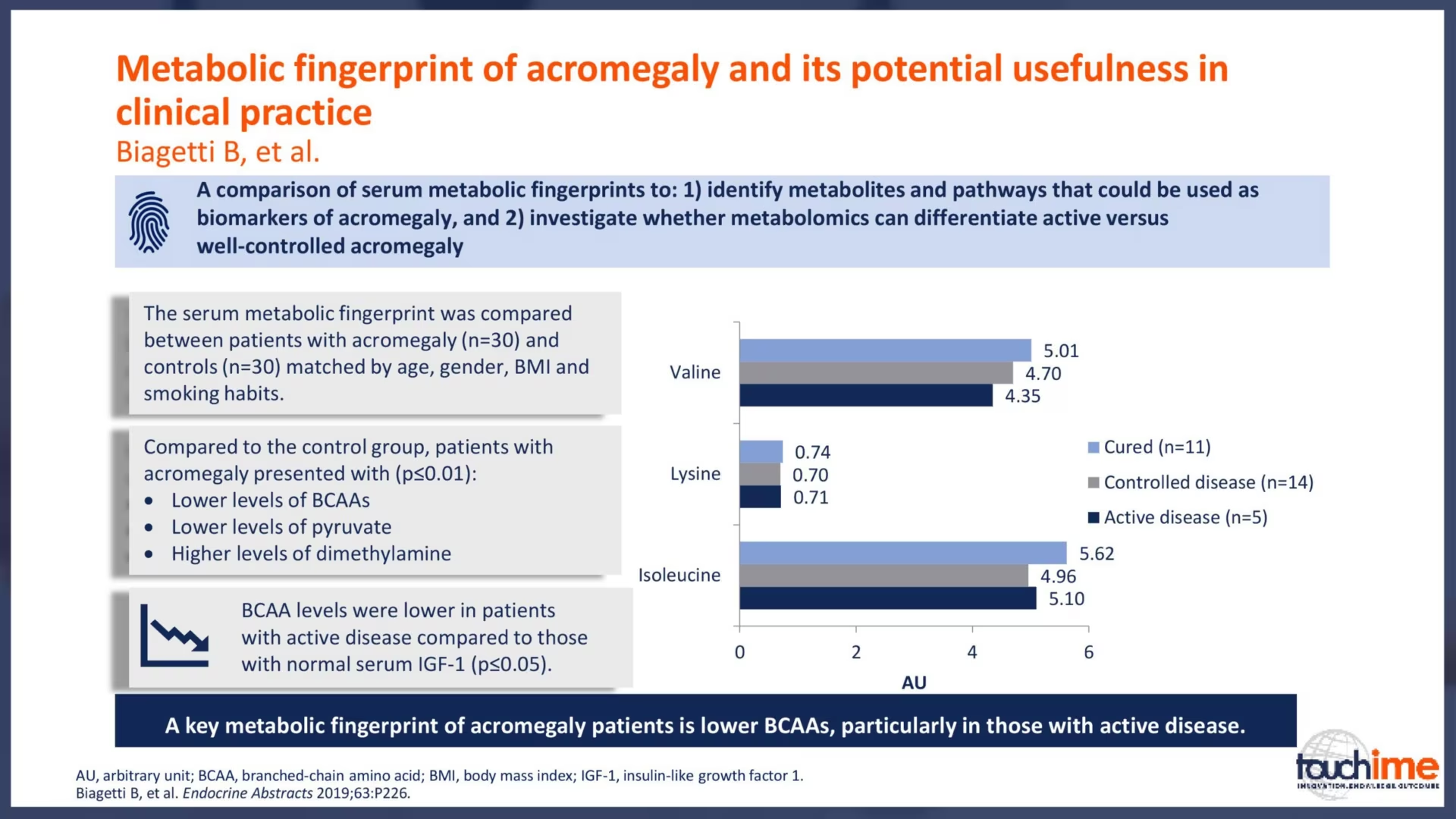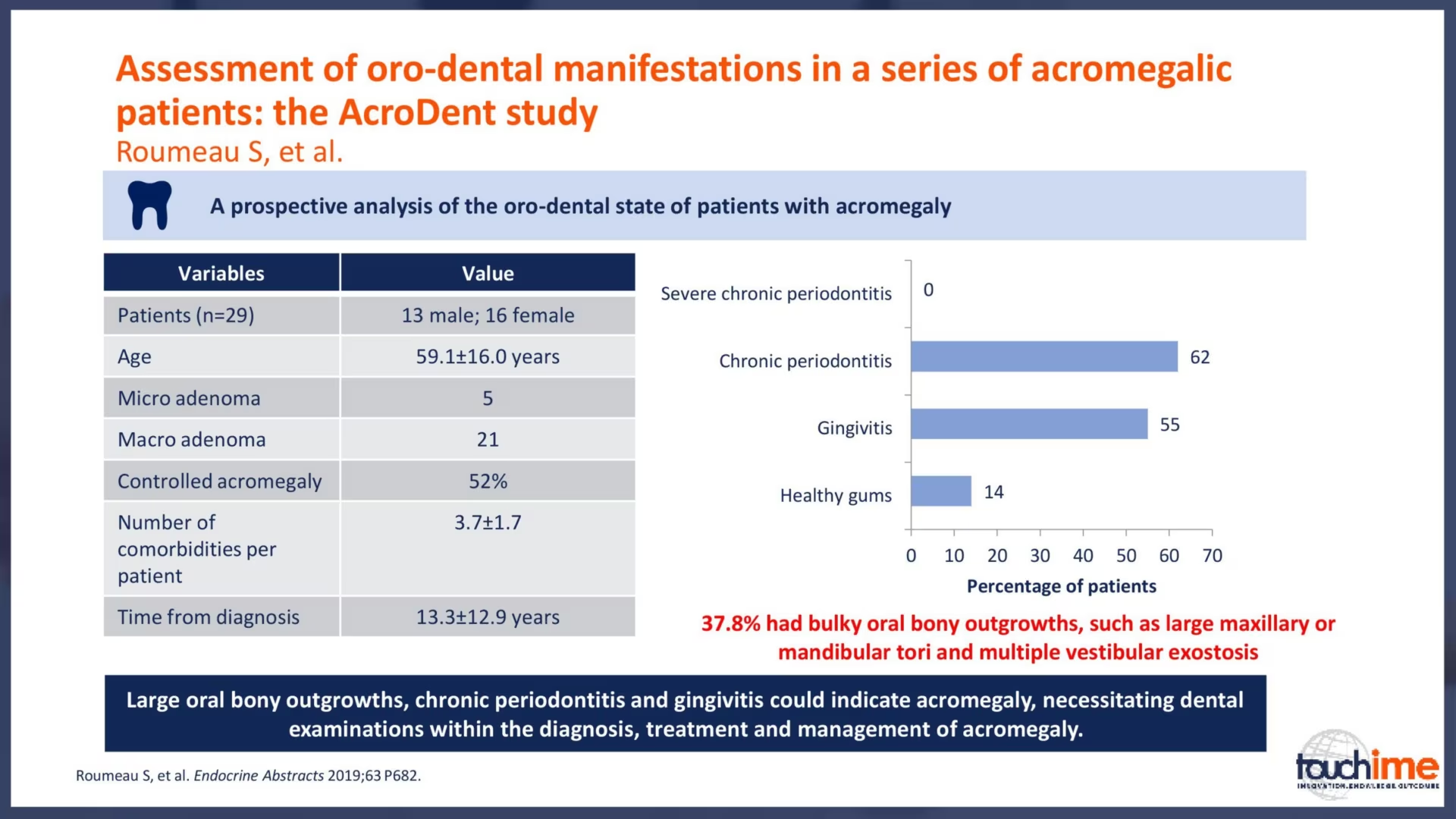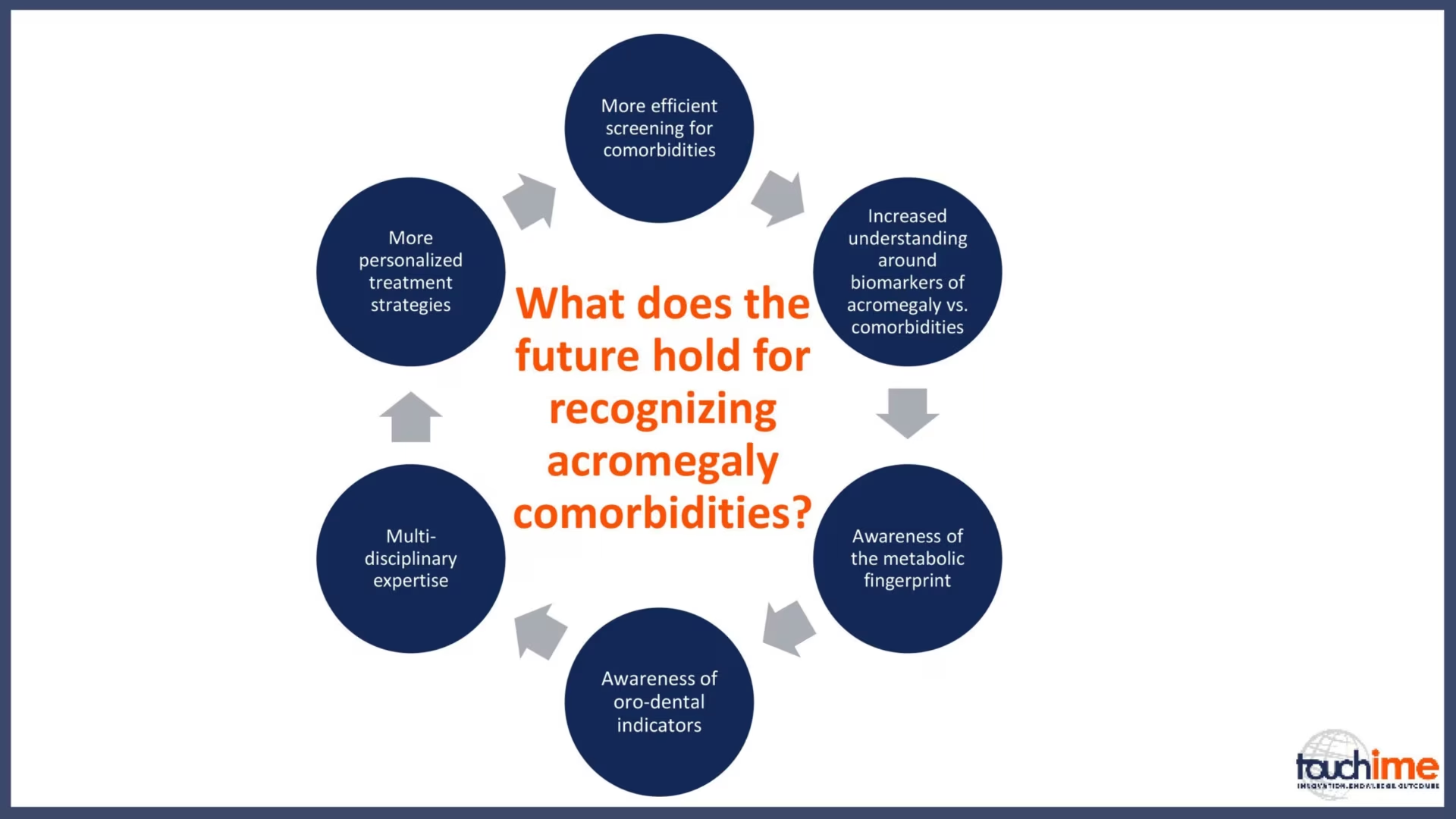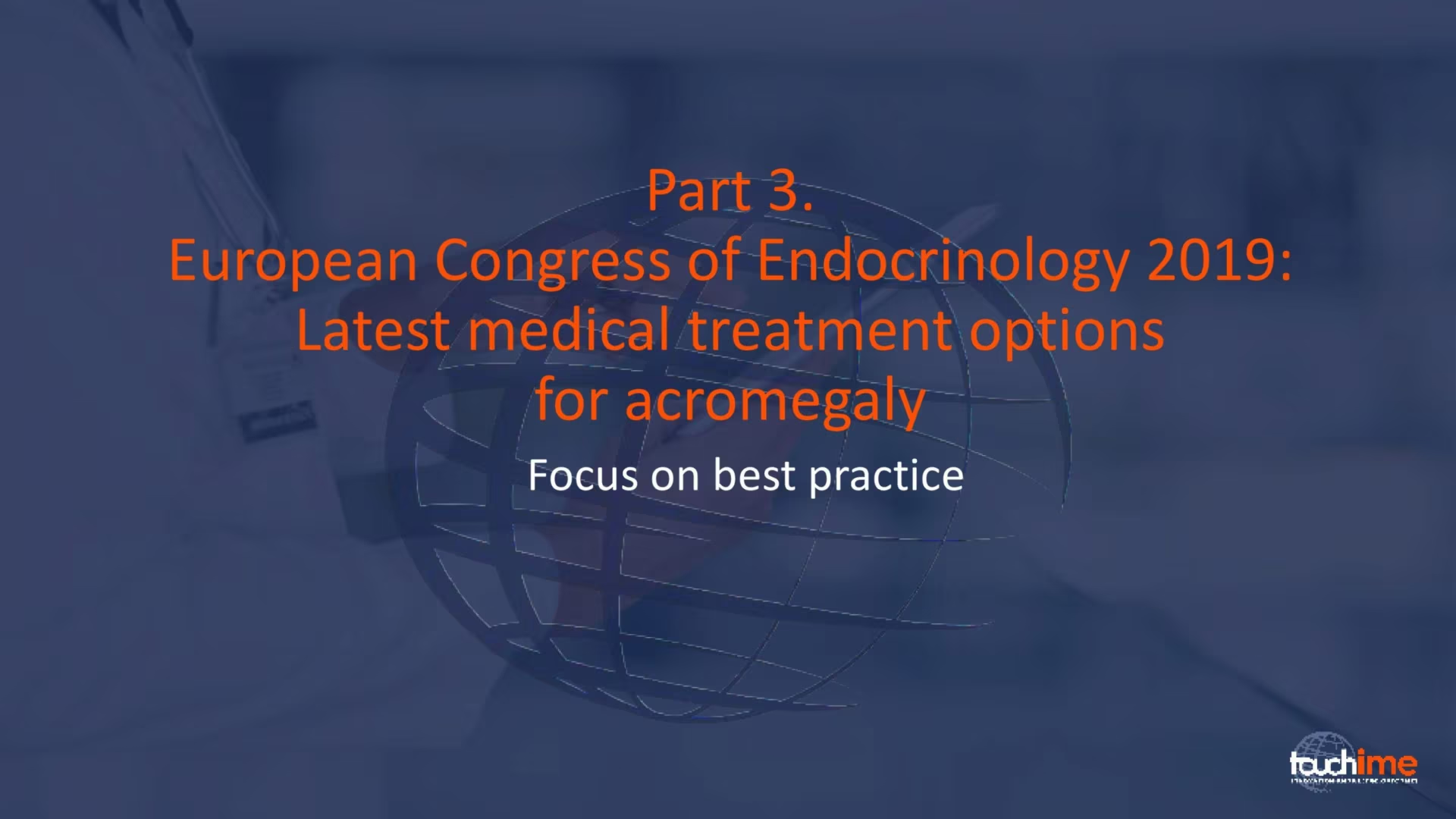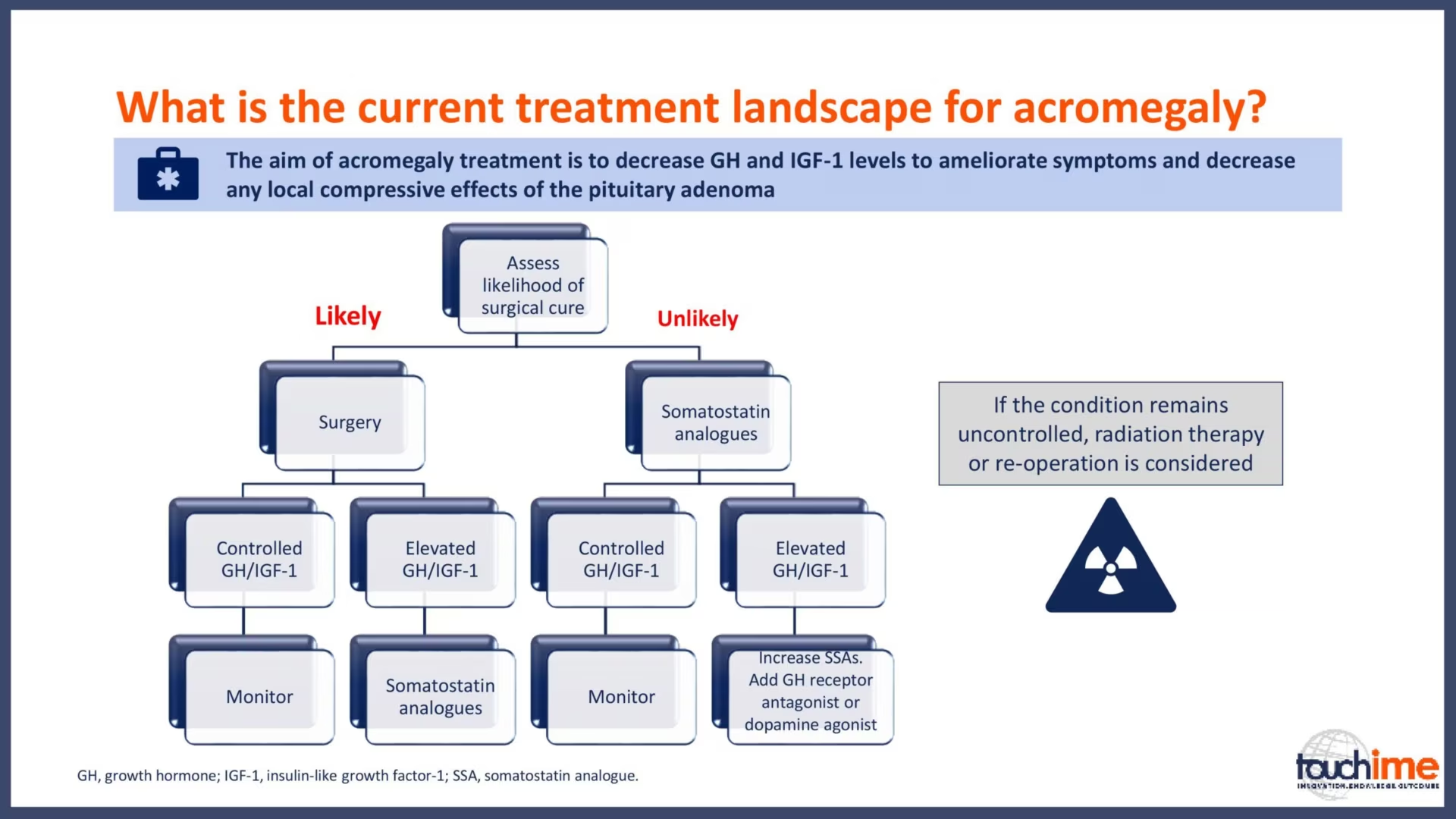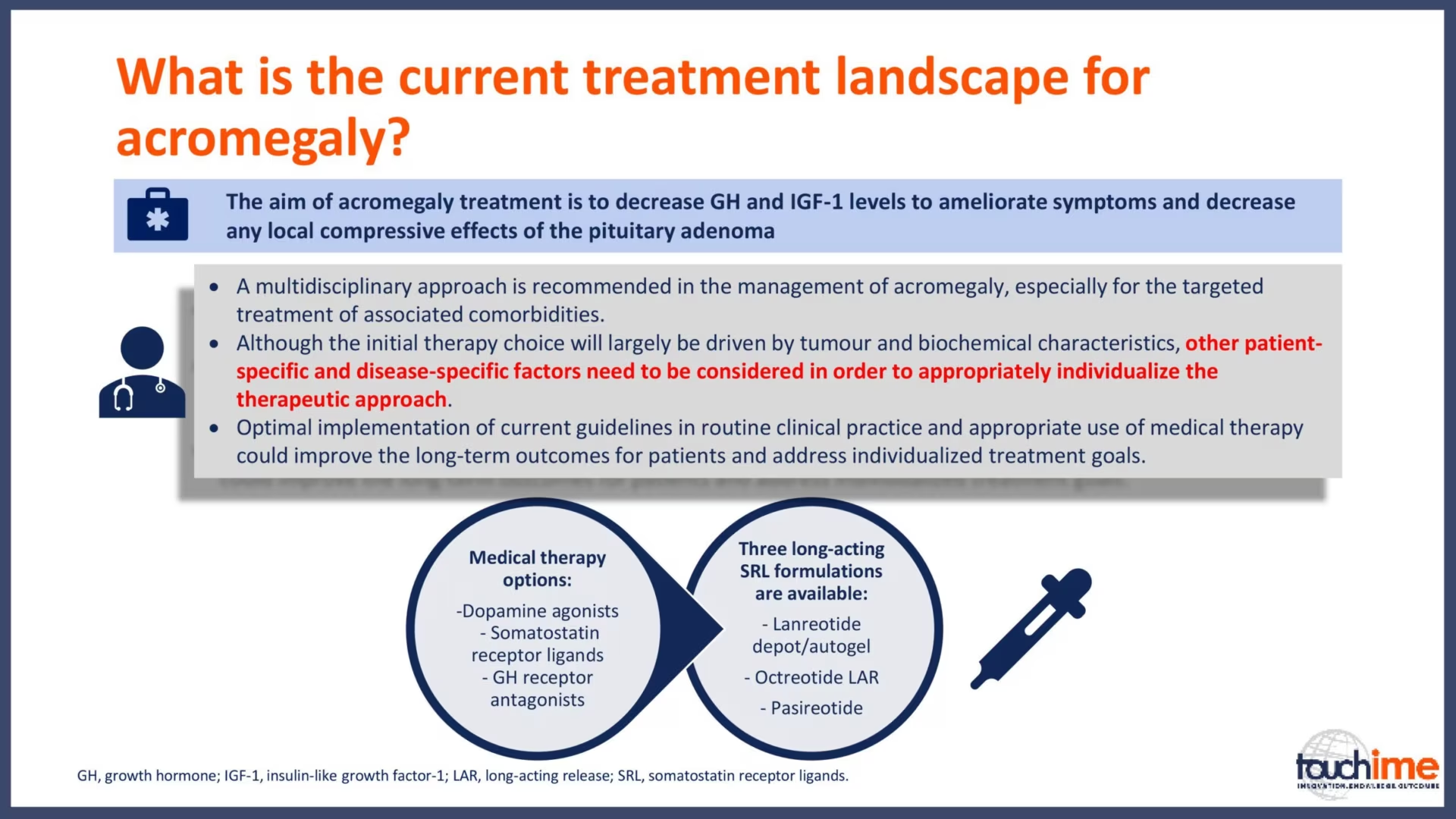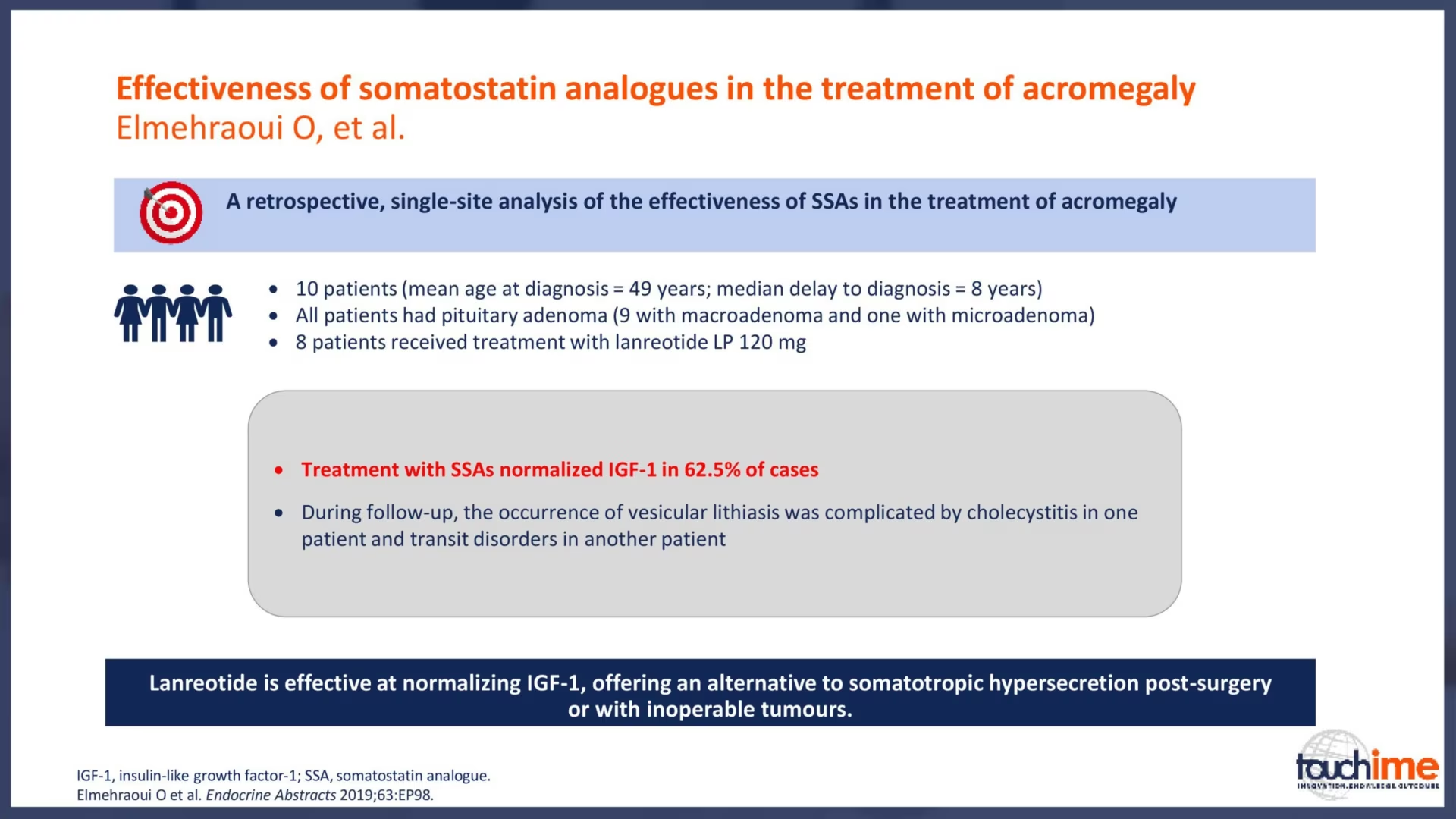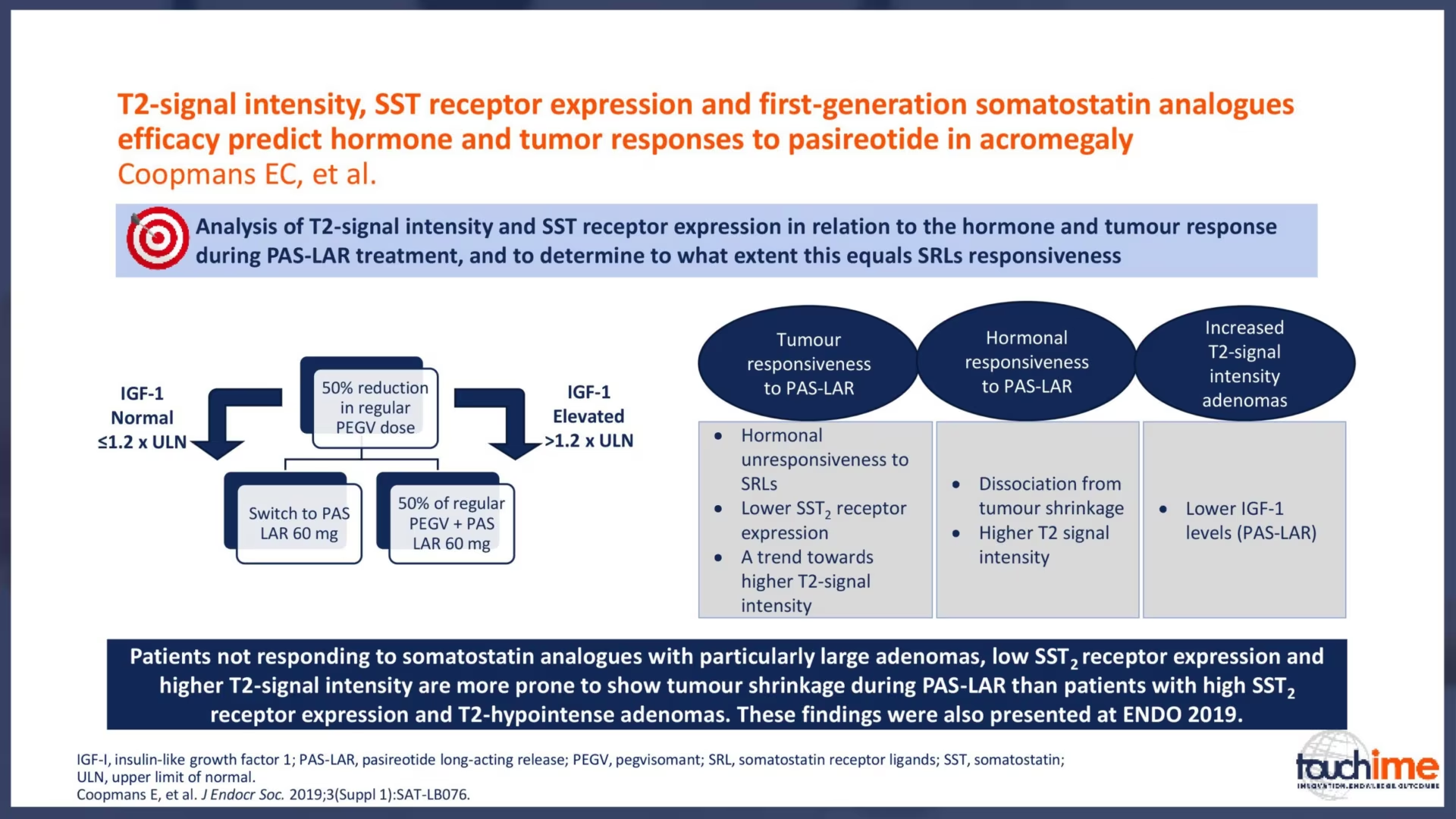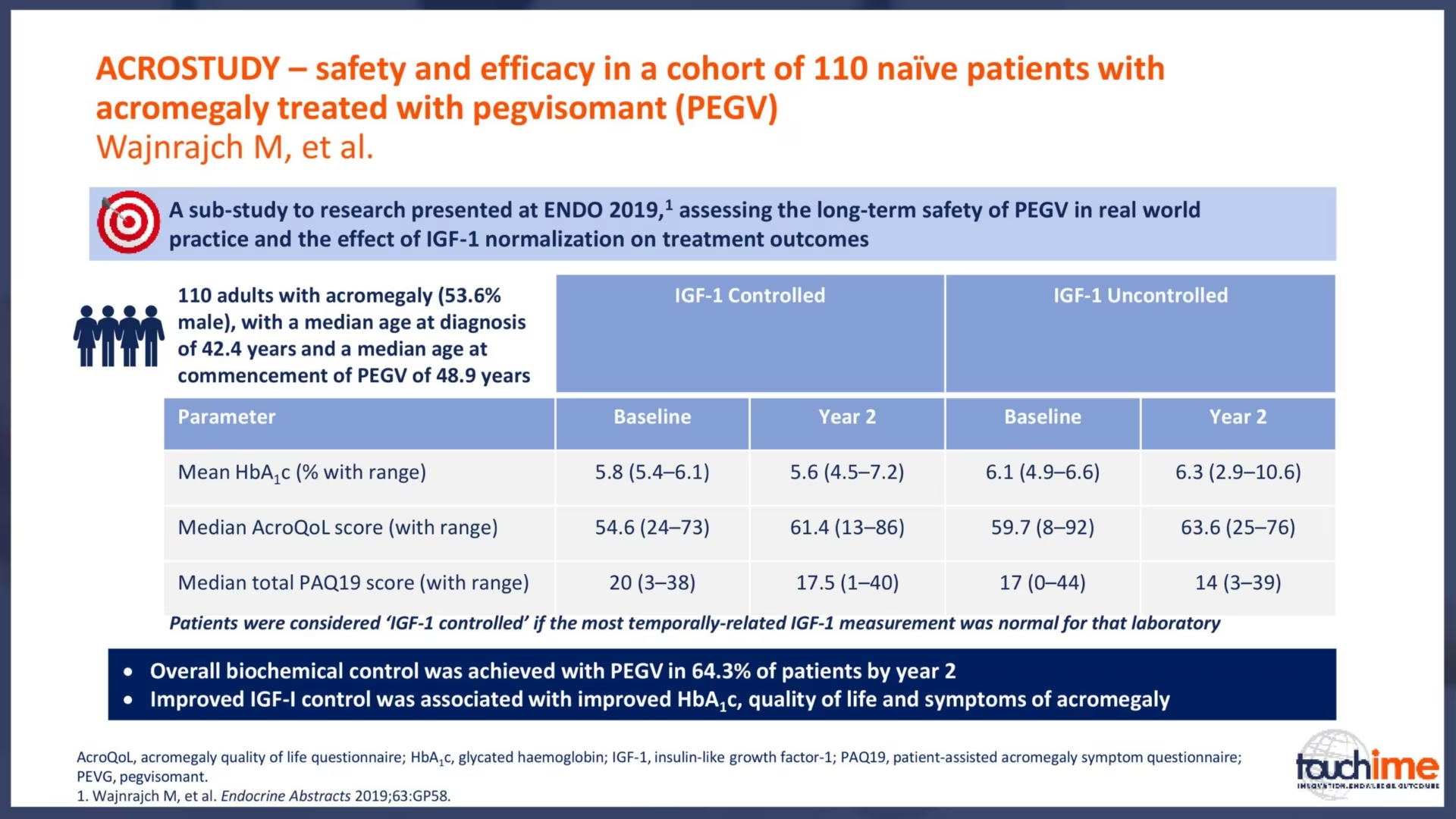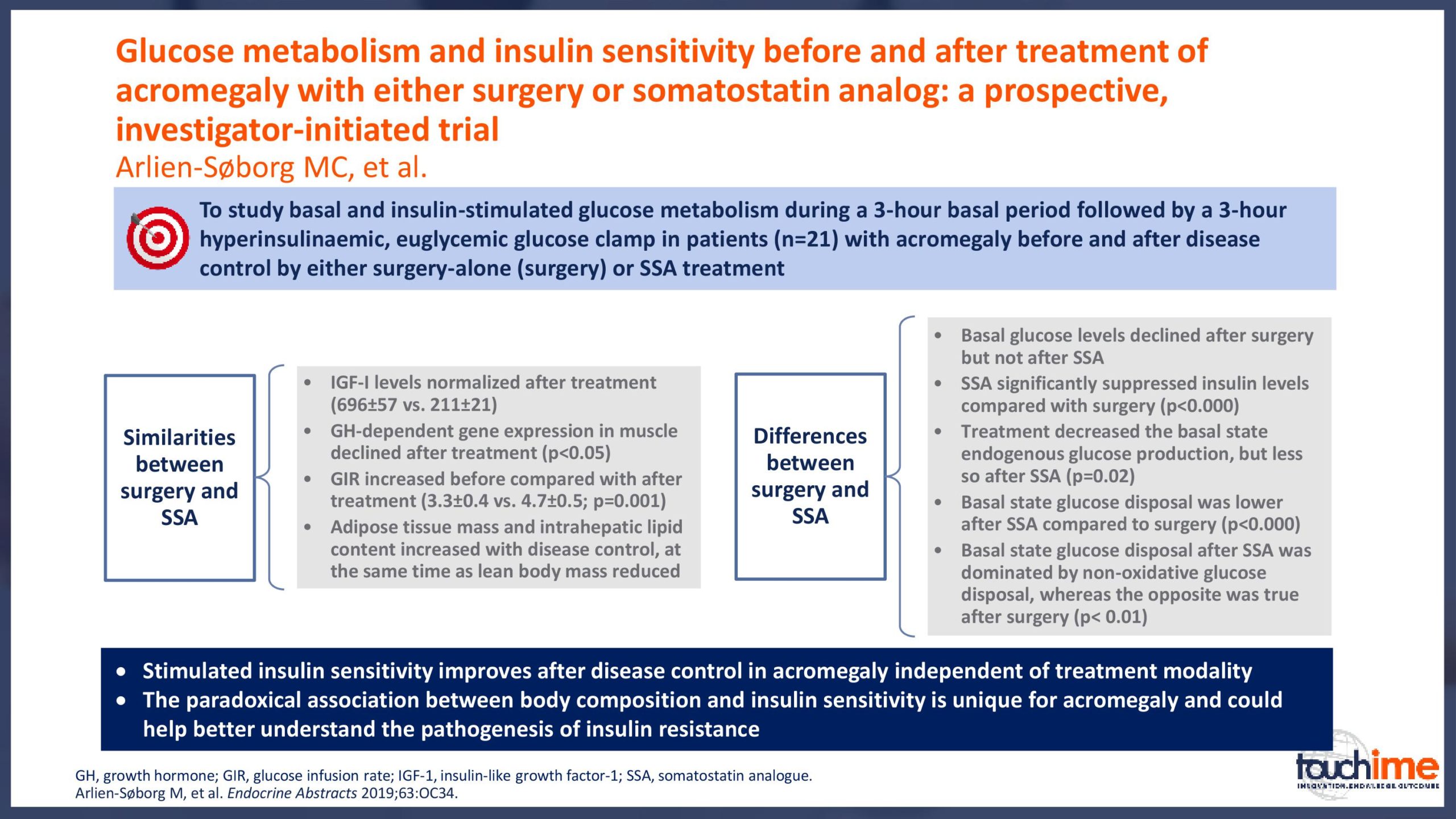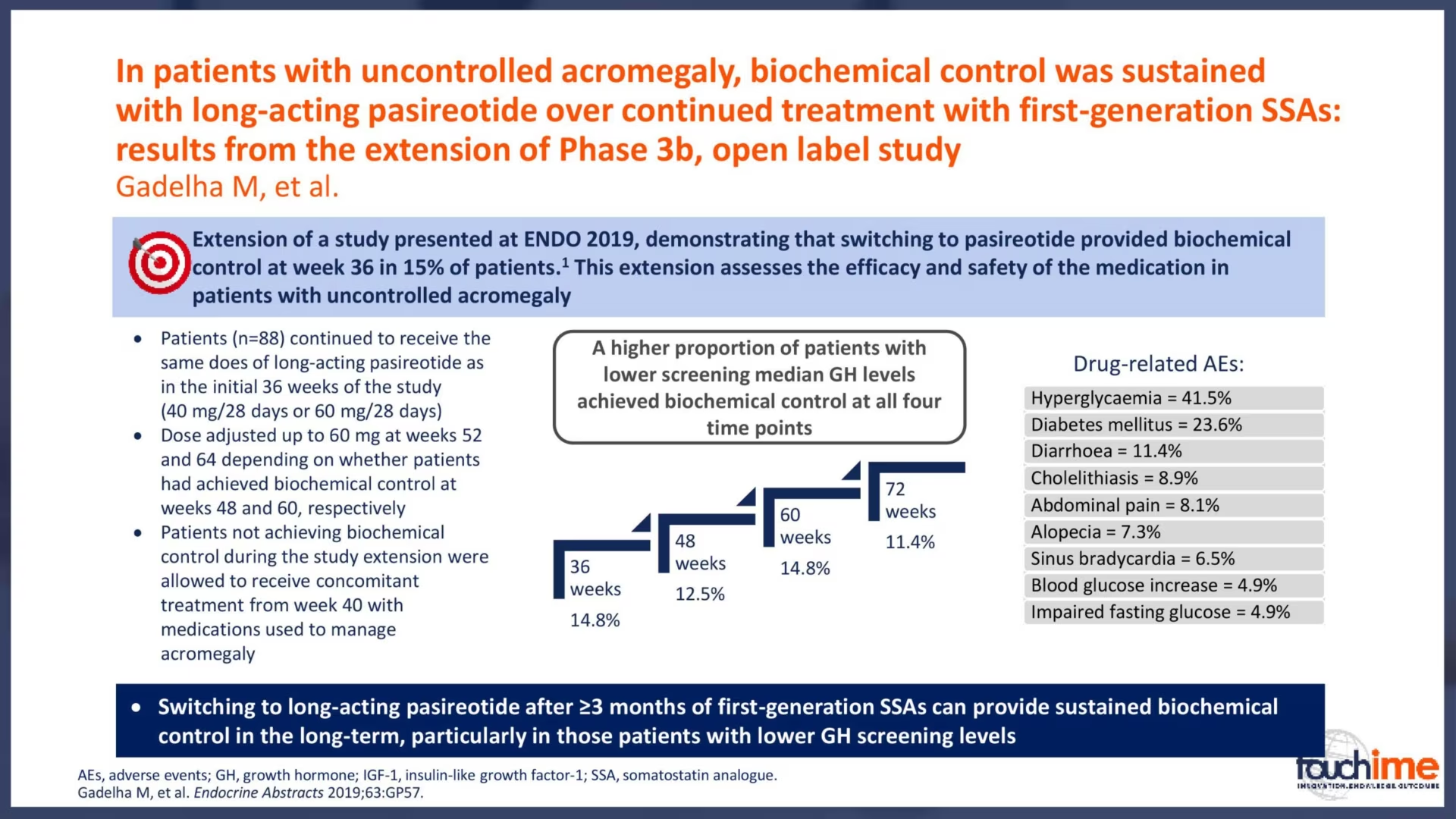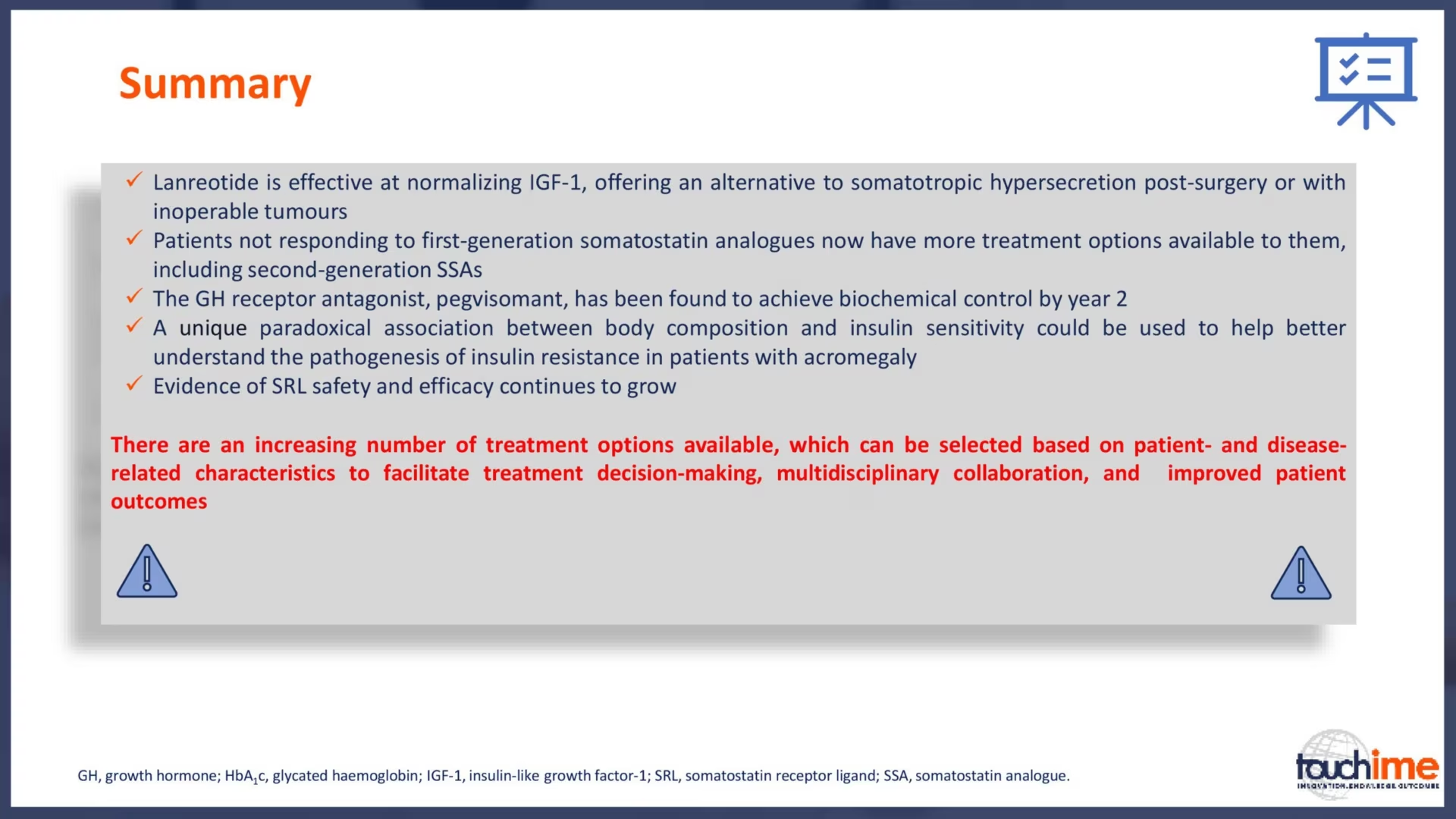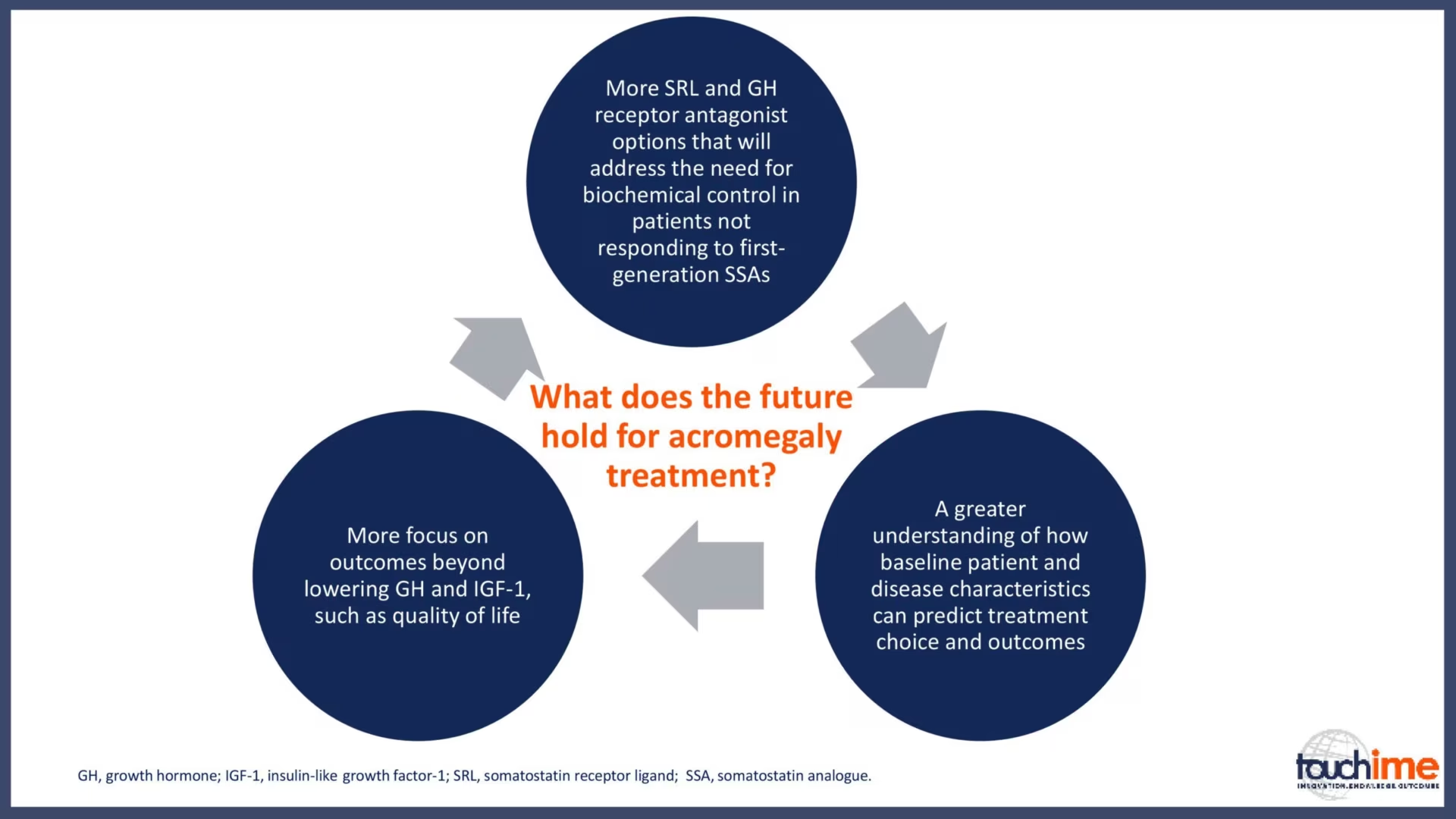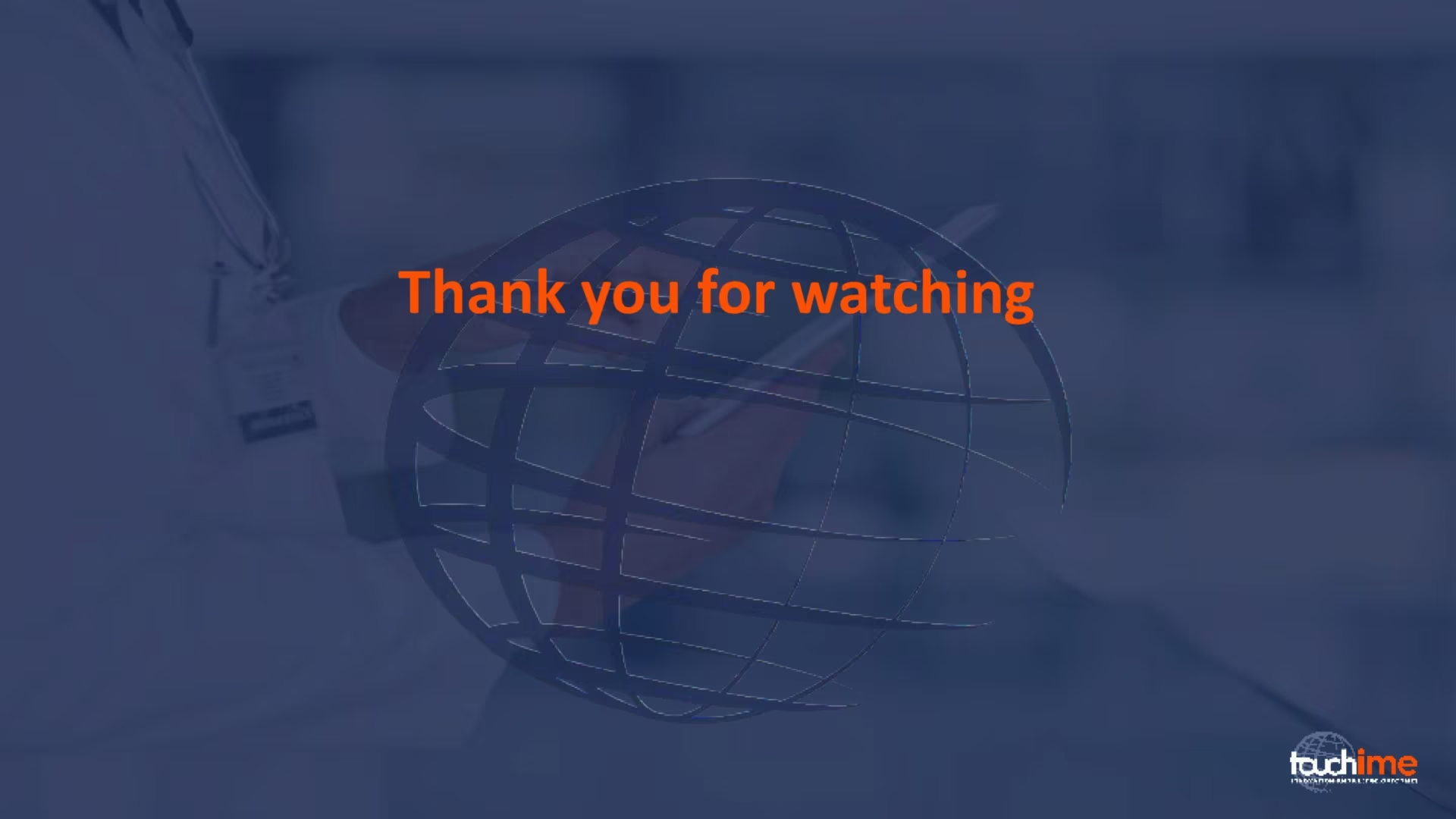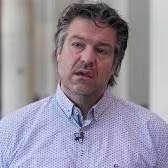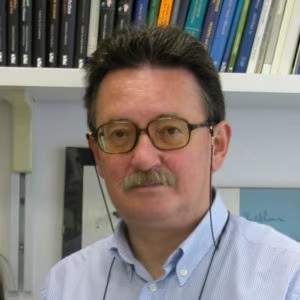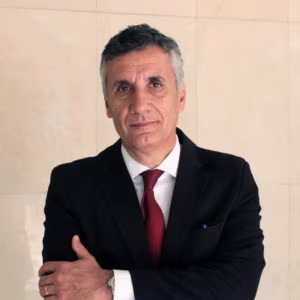touchCONGRESS Continuing the conversation in growth hormone disorders – how do we progress towards personalized medicine for patients with acromegaly?
Stay up to date with the latest developments in the diagnosis, management and treatment of patients with acromegaly with our expert summary from the European Congress of Endocrinology (ECE) in Lyon, France, 18–21 May 2019.
Part 1: Watch internationally renowned expert Prof. John Wass review key data from ECE2019
Part 2: Choose from leading experts who discuss what the data findings mean for global and regional practice
Introduction
Latest information and guidance on the need for early diagnosis and monitoring of acromegaly
Most recent data on patient and disease characteristics in individuals with acromegaly
Latest medical treatment options for acromegaly
Overview
Watch Prof. John Wass reviewing he most important emerging data presented at the ECE 2019 and discussing their potential impact for progressing towards personalized medicine for patients with acromegaly, including:
- What is the latest information and guidance on the need for early diagnosis and monitoring of acromegaly? Focus on excess morbidity and mortality of delayed diagnosis.
- What are the most recent data on patient and disease characteristics in individuals with acromegaly? Focus on recognizing comorbidities for personalized treatment strategies.
- What are the latest medical treatment options for acromegaly? Focus on emerging data.
Prof. John Wass, MD, PhD, Professor of Endocrinology at the University of Oxford, Oxford, UK, has been a Consultant Physician since 1982. He is also the Clinical Lead for the endocrinology workstream of ‘Getting It Right First Time’ (GIRFT), a national programme led by front-line clinicians to help improve the quality and consistency of medical care within the NHS.
Prof. Wass’ extensive clinical and research interests span pituitary tumours, acromegaly, growth hormone deficiency, angiogenesis in endocrinology, and the genetics of osteoporosis and thyroid disease. He has published over 385 articles in scientific journals, written many reviews and chapters in textbooks, and edited several textbooks, including the Oxford Textbook of Endocrinology, Clinical Endocrine Oncology, and the Oxford Handbook of Endocrinology. He also presented the BBC documentary ‘The Fantastical World of Hormones,’ which was broadcast in the UK in March 2014.
In June 1995, Prof. Wass was awarded Distinguished Physician of the Year Award by the American Endocrine Society, making him the first non-American to receive this award. In 2017, he also received the Lifetime Achievement Award from The Pituitary Society in the USA.
Disclosures: None
Prof. John Wass, MD, PhD, Professor of Endocrinology at the University of Oxford, Oxford, UK, discusses what the latest data presented at ECE 2019 might mean in clinical practice for the diagnosis, treatment and management of acromegaly patients.
Prof. Gérald Raverot, MD, PhD, Professor of Endocrinology at Lyon University Hospital, Lyon, France discusses what the latest data presented at ECE 2019 might mean in clinical practice for the diagnosis, treatment and management of acromegaly patients.
Prof. Sebastian Neggers, MD, PhD, Associate Professor of Medicine and Endocrinology at the Erasmus University Medical Center in Rotterdam, the Netherlands, discusses what the latest data presented at ECE 2019 might mean in clinical practice for the diagnosis, treatment and management of acromegaly patients.
Prof. Paolo Beck-Peccoz, MD, Professor of Endocrinology and Metabolic Diseases at the University of Milan, Milan, Italy, discusses what the latest data presented at ECE 2019 might mean in clinical practice for the diagnosis, treatment and management of acromegaly patients.
Prof. Manuel Puig-Domingo, MD, PhD, Associate Professor of Endocrinology at the Autonomous University of Barcelona, Barcelona, Spain discusses what the latest data presented at ECE 2019 might mean in clinical practice for the diagnosis, treatment and management of acromegaly patients.
Please Select A Video:
Overview & Learning Objectives
Overview
Stay up to date with the latest developments in the diagnosis, management and treatment of patients with acromegaly with our expert summary from the European Congress of Endocrinology (ECE) in Lyon, France, 18–21 May 2019.
The information in this activity is intended for endocrinologists and other healthcare professionals involved in the treatment of patients with acromegaly.
Learning Objectives
After watching this touchCONGRESS, you should be able to:
- Interpret the latest information and guidance about the need for early diagnosis and monitoring of acromegaly
- Recall the most recent data around patient and disease characteristics, including the importance of recognizing comorbidities, in order to select the optimal treatment strategy for each individual patient with acromegaly
- Recognize the role of medical treatment options for acromegaly and best practice for patient management using a multidisciplinary team approach

Register to touchENDOCRINOLOGY for FREE
- Peer-reviewed journals and expert opinions
- Interactive CME and e-learning modules
- Video conference highlights



